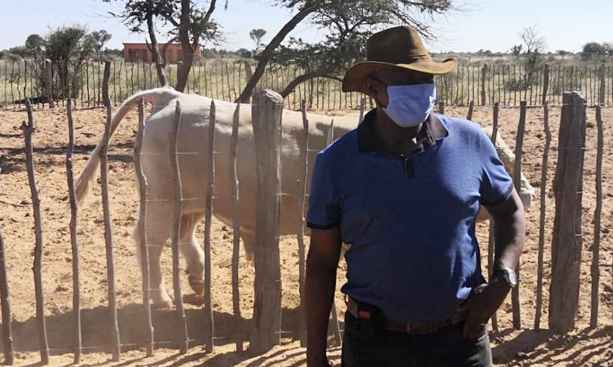By Banks Ndebele
As a nation, we have been fortunate to have presidents who are farmers, one way or the other. Except of course Festus Mogae, all our presidents, past and present are people with connection to farming. Mogae never valued farming, and he considered it a wasteful expenditure. That is why when he became VP and Minister of Finance and Development Planning, he confiscated tractors and implements from farmers who were not able to service their NDB loans because of severe drought. This is what killed farming in Barolong farms, the former bread basket of the country. Mogae simply killed farming in Barolong farms, and since then, the area has never recovered and bounce back.
When he retired as president, Mogae was given livestock that included mostly cattle. He was on record saying he has no time for the cattle post. His gift animals were all taken to BMC for bankable income. That is how we know Mogae as far as his relationship with farming is concerned. Farming suffered a great deal under Mogae. Though he introduced Young Farmers Fund under CEDA, it only benefited a few because it was targeted at people who didn’t have interest in farming. Most projects under this programme collapsed and closed down.
The first president Sir Seretse Khama was an ardent farmer. You move around Gamangwato, there are many water points (didiba) tsa ga Seretse, a demonstration that he had a deep passion for livestock farming.
Masire we hear had 23 cattle ranches in GaNgwaketse, Kgalagadi and Gantsi areas. He was also known for crop production. It is a legacy he is remembered for. Then came Ian Khama. Khama was known for having an orange plantation farm in Tswapong, near Chadibe village. He also inherited a number of his father’s water points.
If there is one achievement that the BDP has not been able to note and package well, it is the growth of the small stock sector during Khama’s rule. The population of livestock more than doubled during that time, through LIMID, Youth Grants and Poverty eradication programmes.
It was also under Khama’s rule that we saw the introduction of ISPAAD that covered subsidies on fencing, ploughing, and horticulture farming. The number of horticulture farmers increased significantly during Khama’s rule. The introduction of theko ya letlhafula in schools encouraged many to take farming which had taken a back seat in its contribution to the economy, more seriously because they could now see value in doing it.
In 2013 we saw the revised land policy that embraced agro-tourism as a value addition to the farming enterprise. Though the take off was painstakingly slow because of bureaucratic bottlenecks, it is the reason for increased farm grabs by the middle class, mostly middle aged people.
The only major farming initiative failure during Khama’s era was the backyard gardening. This was a monumental failure, a monumental wastage of public funds that never realised any return on investment. The current President Mokgweetsi Eric Masisi is a farming enthusiast. He owns tracks of farming land and large heads of exotic breeds of livestock. The enactment of the Revised Land Utilisation Policy before the last election was one of his big policy pronouncement related to the Agriculture sector. MEK as our president is popularly known, loves farming. He is always seen amongst farming communities giving solidarity messages.
MEK is only two years into his term. He has the opportunity to make himself to be remembered as the man who revolutionalised farming in Botswana. He should focus on turning around the sector into one that will contribute meaningfully to our GDP, employment creation, food security in the country, and a diversification channel of our mineral dependent economy.
We need to see more assistance to commercial farmers in the area of borehole drilling, electrification of production areas, loan parcels tailor made for farmers, protecting farmers from unfair trading by chain stores, etc. MEK and his government should consider subsidies for solar power for farmers who are far away from the national grid. Government should buy some food stuffs for government institutions, food parcels beneficiaries, directly from farmers to promote local economic development. This will go a long way in ensuring farmers stay afloat and continue producing.
Banks Ndebele
Mogoditshane
